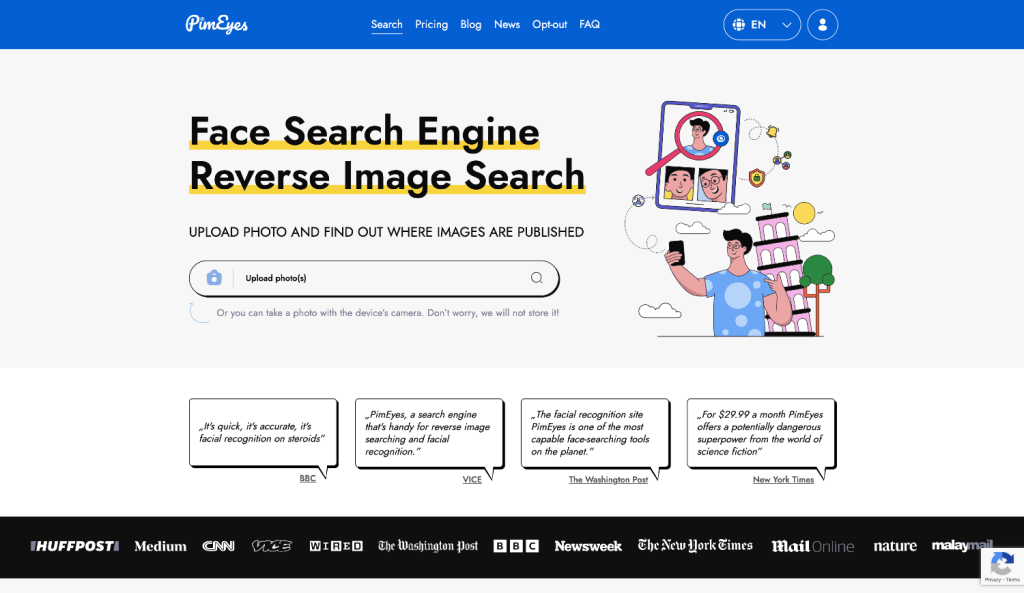PimEyes is a facial recognition search engine that lets users search for images on the internet using a photo of a face. It utilizes advanced technologies such as artificial intelligence and facial recognition to help users find their photos across the web.

This service can be particularly useful for identifying where images are being used online, potentially without the subject's permission
The website was originally developed by a Polish startup and has since been acquired by Giorgi Gobronidze through a shell corporation. It has faced various legal inquiries and criticisms, particularly concerning privacy issues and the potential misuse of the technology for cyberstalking or unauthorized surveillance
PimEyes offers several subscription plans that provide different levels of access and services, including alerts about new results, the ability to filter searches, and options for removing images from search results. Additionally, the site has implemented features app to block searches for children's faces and to manage the visibility of potentially explicit material
PimEyes offers several key features app that make it a robust facial recognition search engine:
- Facial Recognition Search: Users can upload a photo to search the internet for images that contain the same face. This is achieved through advanced facial recognition technology.
- Subscription Plans: Different levels of access and functionality are available through various subscription plans. Higher-tier plans provide more features app such as access to more detailed search results and additional tools for managing these results.
- Alerts: Subscribers can set up alerts to receive notifications when new images matching their face are found online. This helps in monitoring one's digital footprint.
- Opt-Out and Takedown Requests: Users have the option to request the removal of their images from the search results, enhancing personal privacy. This is complemented by the ability to issue takedown requests for images hosted on external sites, particularly useful for addressing unauthorized use or copyright infringement
- Exporting Results: Subscribers can export search results into PDF or CSV formats, making it easier to manage and analyze the data.
- Deep Search: Available only for advanced subscribers, this feature allows for a more thorough search that might uncover additional results not found during a standard search
These features app cater to a variety of needs, from personal security and privacy management to professional use cases like copyright monitoring.
Here are frequently asked questions (FAQ) about PimEyes:
- Can PimEyes be used for identity verification or professional purposes?
PimEyes is primarily intended for personal use, allowing individuals to monitor where their photos are publicly available. While it can support identity verification, it's not a substitute for formal identity verification tools and should be used responsibly within its limitations and terms of service. - What is PimEyes, and how does it work?
PimEyes is a facial recognition search engine that allows users to upload an image of a face and search for similar faces across the internet. It uses advanced facial recognition algorithms to scan the web and provide matches with similar facial features app, helping people track where their image might appear online. - Is PimEyes free to use?
PimEyes offers limited free searches, but for access to detailed search results and advanced features app (such as viewing specific URLs where a face appears), users need to subscribe to one of PimEyes' paid plans. - How accurate is PimEyes in finding similar faces?
PimEyes is known for its strong facial recognition accuracy, which can identify similar facial features app even with varying angles, lighting, and quality of images. However, results can vary, and it might show faces that look similar but are not exact matches. - How does PimEyes handle privacy and data protection?
PimEyes claims that it only indexes publicly accessible images and does not store images or personal data from users unless explicitly authorized by them. Additionally, they allow users to request the removal of their images if found on third-party websites, provided those sites comply.



